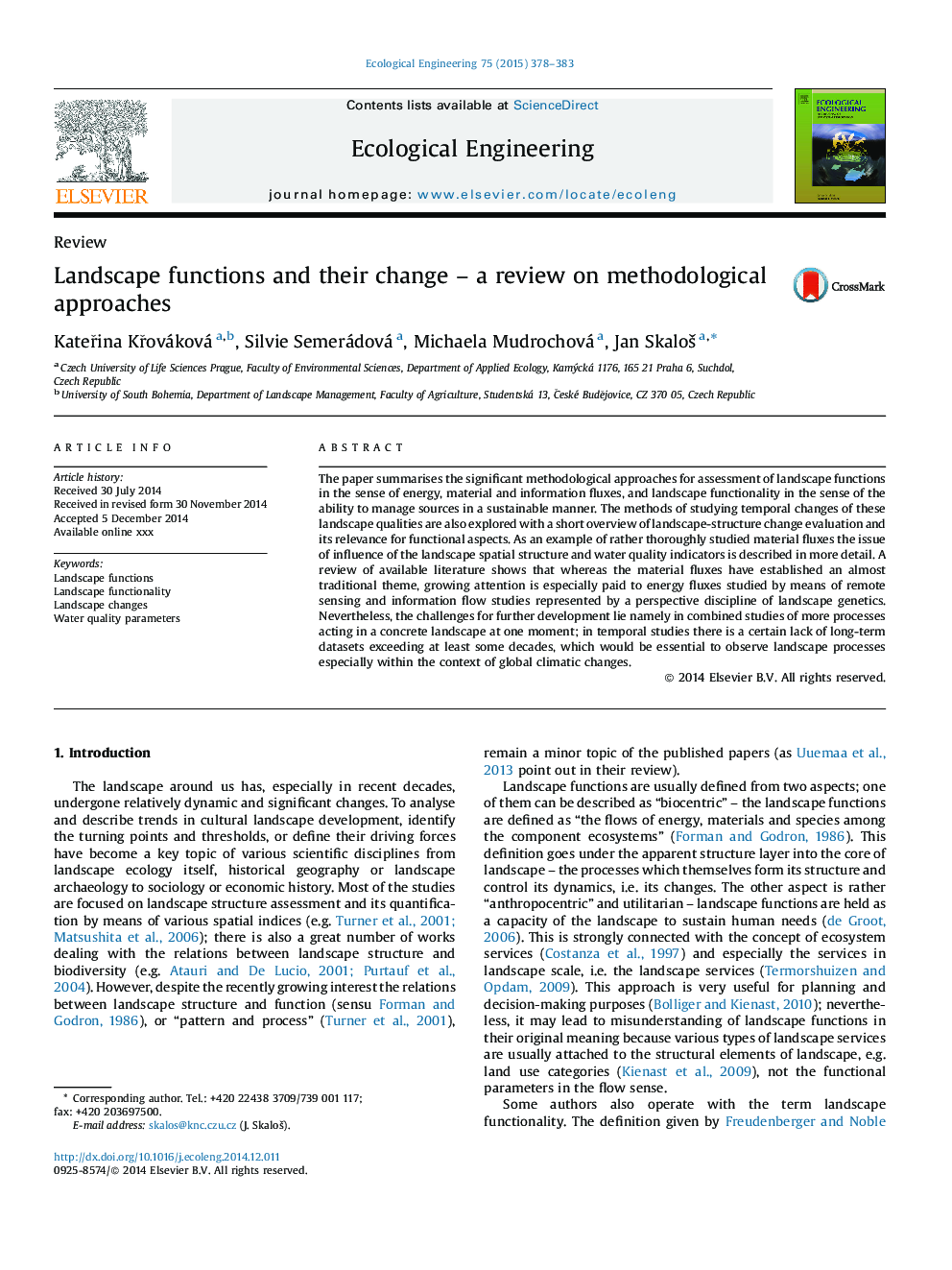| Article ID | Journal | Published Year | Pages | File Type |
|---|---|---|---|---|
| 6301752 | Ecological Engineering | 2015 | 6 Pages |
Abstract
The paper summarises the significant methodological approaches for assessment of landscape functions in the sense of energy, material and information fluxes, and landscape functionality in the sense of the ability to manage sources in a sustainable manner. The methods of studying temporal changes of these landscape qualities are also explored with a short overview of landscape-structure change evaluation and its relevance for functional aspects. As an example of rather thoroughly studied material fluxes the issue of influence of the landscape spatial structure and water quality indicators is described in more detail. A review of available literature shows that whereas the material fluxes have established an almost traditional theme, growing attention is especially paid to energy fluxes studied by means of remote sensing and information flow studies represented by a perspective discipline of landscape genetics. Nevertheless, the challenges for further development lie namely in combined studies of more processes acting in a concrete landscape at one moment; in temporal studies there is a certain lack of long-term datasets exceeding at least some decades, which would be essential to observe landscape processes especially within the context of global climatic changes.
Related Topics
Life Sciences
Agricultural and Biological Sciences
Ecology, Evolution, Behavior and Systematics
Authors
KateÅina KÅováková, Silvie Semerádová, Michaela Mudrochová, Jan SkaloÅ¡,
